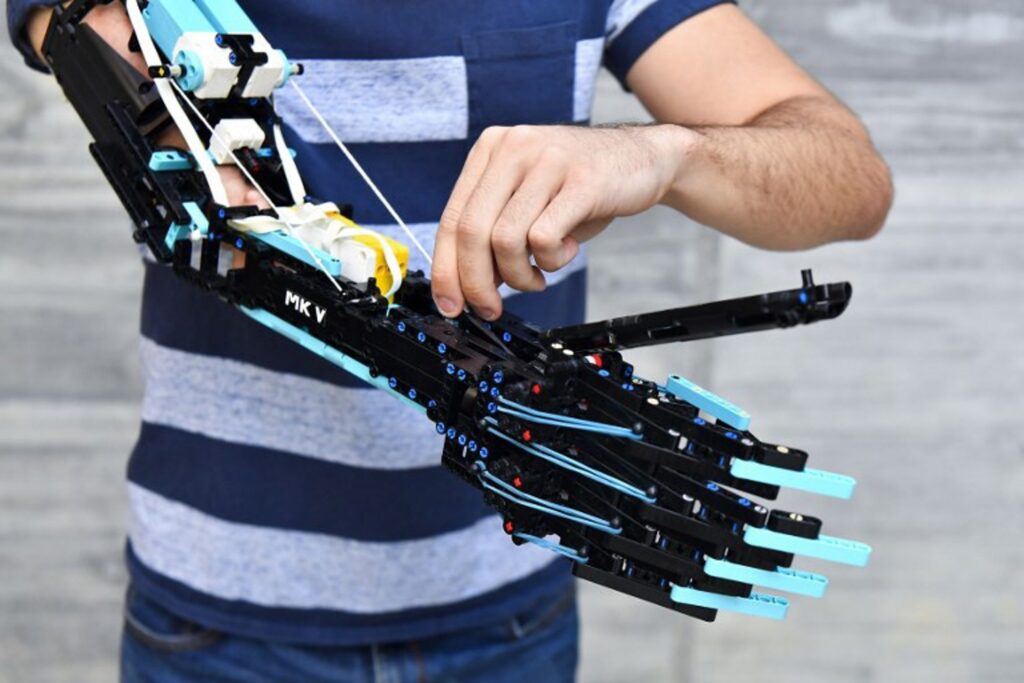The BruBotics research group at the Vrije Universiteit Brussel (VUB - Brussels Free University) has developed non-invasive brain-machine interfaces (BMI) for everyday use, such as controlling a robotic arm, the university said in a press release.
The project was conducted in collaboration with VUB’s human physiology and sports physiotherapy research unit, MFYS, and ETIS Lab of the University of Paris-Cergy, under the EUTOPIA network for constructing future European universities.
“BMI is a link between the brain and a computer, measuring brain activity and converting it into commands to control devices,” MFYS researcher Arnau Dillen explains.
Under the supervision of VUB Physical Education and Physical Therapy Professor Kevin De Pauw, Dillen has created a BMI that allows the brain to control a robotic arm through electrophysiological measurements (Electroencephalography or EEG).
The method is non-invasive, unlike the types “proposed by Elon Musk’s Neuralink company,” which developed a brain implant first inserted into a tetraplegic man last January, the VUB mentioned in its statement. “This makes the system much more accessible for everyday use without surgical intervention,” says Dillen.
Motor imagery, which measures brain activity while a person is thinking of a movement, is used in this method. “By analysing specific frequencies of EEG signals, the system can determine the person’s imagined movement. This data is then used to control the robotic arm,” De Pauw explains.
An augmented reality headset also uses eye movements to select objects in the environment while the user can control the arm through thought alone.
The next phase of the research will seek to develop the system into a marketable product.

